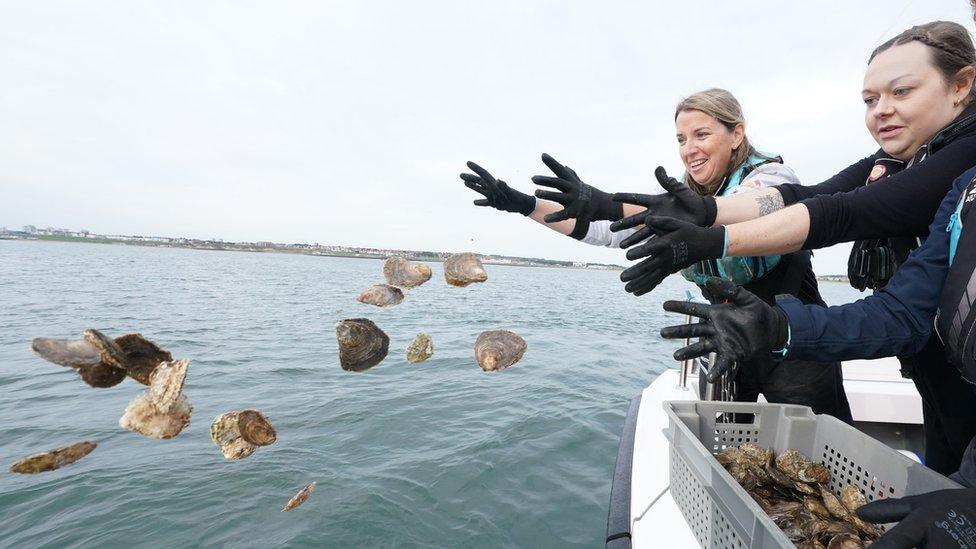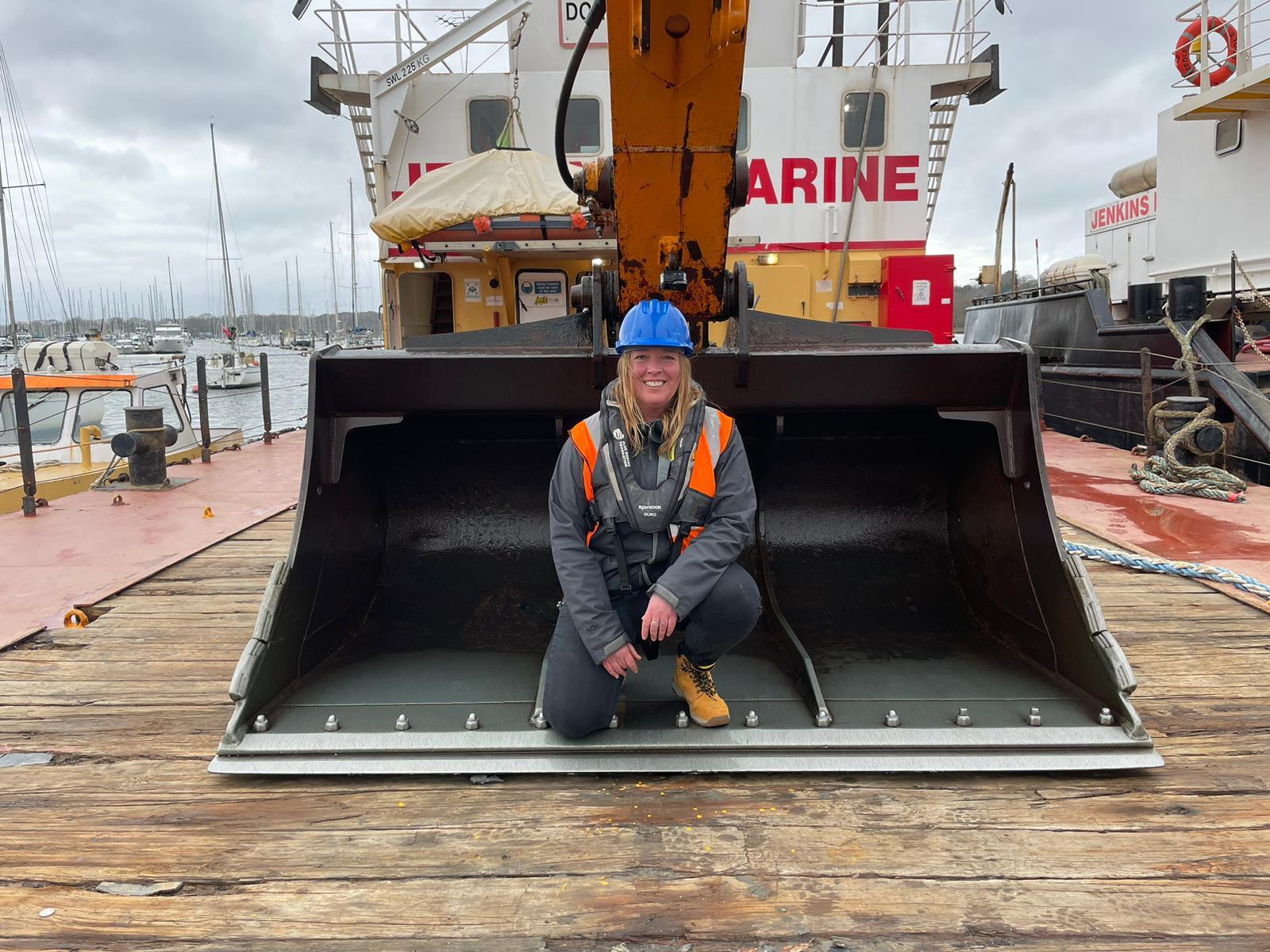Childhood coastal memories inspired oyster project

George, left, demonstrates how oysters clean water and remove excess nitrogen from the oceans
- Published
The founder of an oyster restoration project was inspired by "nostalgic memories of shrimping and raking through cockles as a child".
George Birch said his "wonderful connection to the north Norfolk coastline" encouraged his company to build an oyster reef off Blakeney Point.
At least four million oysters will be placed on 40,000 clay bricks in the North Sea by the end of 2026, in the hope of increasing biodiversity.
Mr Birch, founder of Oyster Heaven, said: "Many people across the north Norfolk coastline remember their grandfathers fishing oysters, so we really hope this is going to be something which turns into a sustainable fishery in the future."

The clay bricks being put into the sea at Blakeney Point are said to act as a hard surface for the oysters to call their home
There are a number of oyster farms in the area - in Thornham and Stiffkey - but Oyster Heaven's reef will not be used for food or other products.
It is hoped the molluscs will restore marine ecosystems, by improving water quality and providing a home to a wide range of species.
According to Rewilding Europe, oyster populations have declined by 95%, external, with native oyster reefs one of the most threatened marine habitats on the continent.
"This is my first stab at trying to come back to this really important place of my childhood and make it back to something that resembles what we had a few hundred years ago," said Mr Birch.
"I've always had that fond nostalgic memory of shrimping and raking through cockles, and that interest as a child grew.
"My background academically was marine biology and I wanted to have a positive impact on the ocean," he said.

Oyster Heaven says this will become the UK's largest oyster reef restoration project, with about 4m young oysters spread around Blakeney Point
Oyster Heaven, which has also created a reef off the coast of the Netherlands, hopes the baby oysters will start having their own children and form "a new population".
The company will install the reefs in collaboration with Norfolk Seaweed, a local aquaculture business.
Piers Hart from the World Wildlife Fund (WWF) said the main benefit of the project was improving biodiversity and water quality.
"Oysters filter the water and remove nutrients and help to clean up the coast," he said.
Funding for the project has come from pet food firm Purina, which uses fish by-products.
Lisa Boulton, Purina Europe's oceans regeneration lead, said: "As marine biodiversity faces significant challenges, it is essential we come together for collective restoration efforts."
Work to build the reef starts this month and it will continue to be monitored over the next 10 years.
Four million oysters returning to Norfolk shores
Native oysters had disappeared from Norfolk coastlines. Now they are being reintroduced.
Get in touch
Do you have a story suggestion for Norfolk?
Follow Norfolk news on BBC Sounds, Facebook, external, Instagram, external and X, external.
Related topics
- Published2 October 2023

- Published5 April 2023
